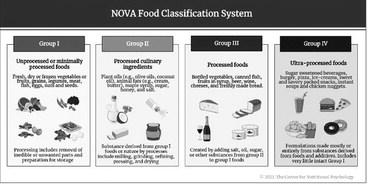Ultra processed foods and heart health


Many of us may have heard that processed foods are not good for our health. Fewer of us, however, may know that there is a difference between processed, and ultra-processed. Processed food refers to any food that has gone through a process that changes its makeup. This means heating, freezing, dicing, or juicing. Baby carrots, canned beans, diced tomatoes, broccoli florets, and frozen peas are all considered processed foods. The foods listed above are all healthy! Foods that are listed in the ultra-processed food group, however, have little to no nutritional value.
Ultra processed refers to foods that consist mostly of substances that are added to food that increase shelf life, flavor, or both. Sugars, fats, and salts are some of the ingredients that are typically added for flavor purposes. Emulsifiers, stabilizers, and preservatives are typically added for increasing the time an item will be shelf stable and maintain the consistency of the item. Dyes are also commonly added to these foods to try and lure people- most commonly children- into buying them.
Foods that many of us give our children as snacks, including fruit snacks, potato chips, baked goods, soda, processed meats, and mass-produced bread fall under the ultra-processed category. A good rule of thumb is, if you have to put little to no effort into the food you are eating, it is probably considered ultra-processed. Instant noodles, rice cups, “just add water” and throw it in the microwave meals are most likely ultra-processed.
According to the AHA, heavy processing may also strip out fiber, altering how the body digests food and affecting friendly gut bacteria. Ultra-processed foods now account for over 50% of total caloric intake in many developed nations, including the U.S., according to a 2024 report by the World Health Organization. Researchers warn this dietary shift is driving up rates of hypertension, obesity, and type 2 diabetes — all major risk factors for cardiovascular disease. Those with diets higher in ultra-processed foods are also found to have higher rates of depression.
The issue with this is that for many, the cost of healthy foods is more expensive than those that are unhealthy for us. A Mc-Donald’s meal, or a box of fruity cereal will last longer than a container of berries and provide meals. While taking food dyes and processed oils out of “fast” food or snack items isn’t bad, what are they going to be adding in their place to keep them shelf stable or “pretty?” Also, this is still not solving the problem that good quality fruits, vegetables, and proteins are largely unaffordable and inaccessible to most. Food deserts, or areas with little to no access to fresh produce (either due to short growing seasons or no grocery store access), causes prices to increase due to increased shipping and storage costs.
This summer, challenge yourself to swap two ultra-processed foods for unprocessed or minimally processed food. Or even better, start your own garden and grow your own unprocessed foods with minimal investments. Your future self will thank you!




